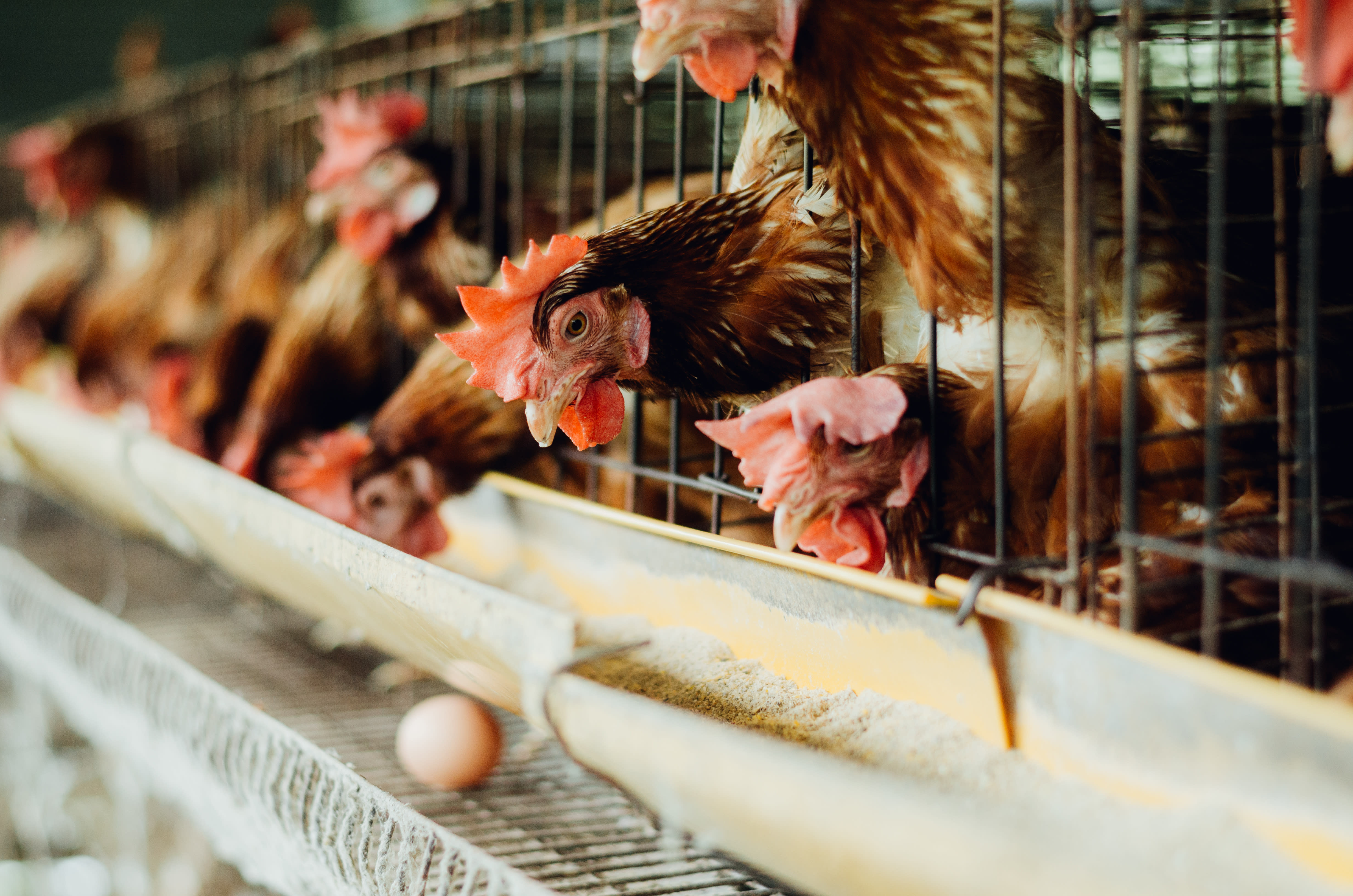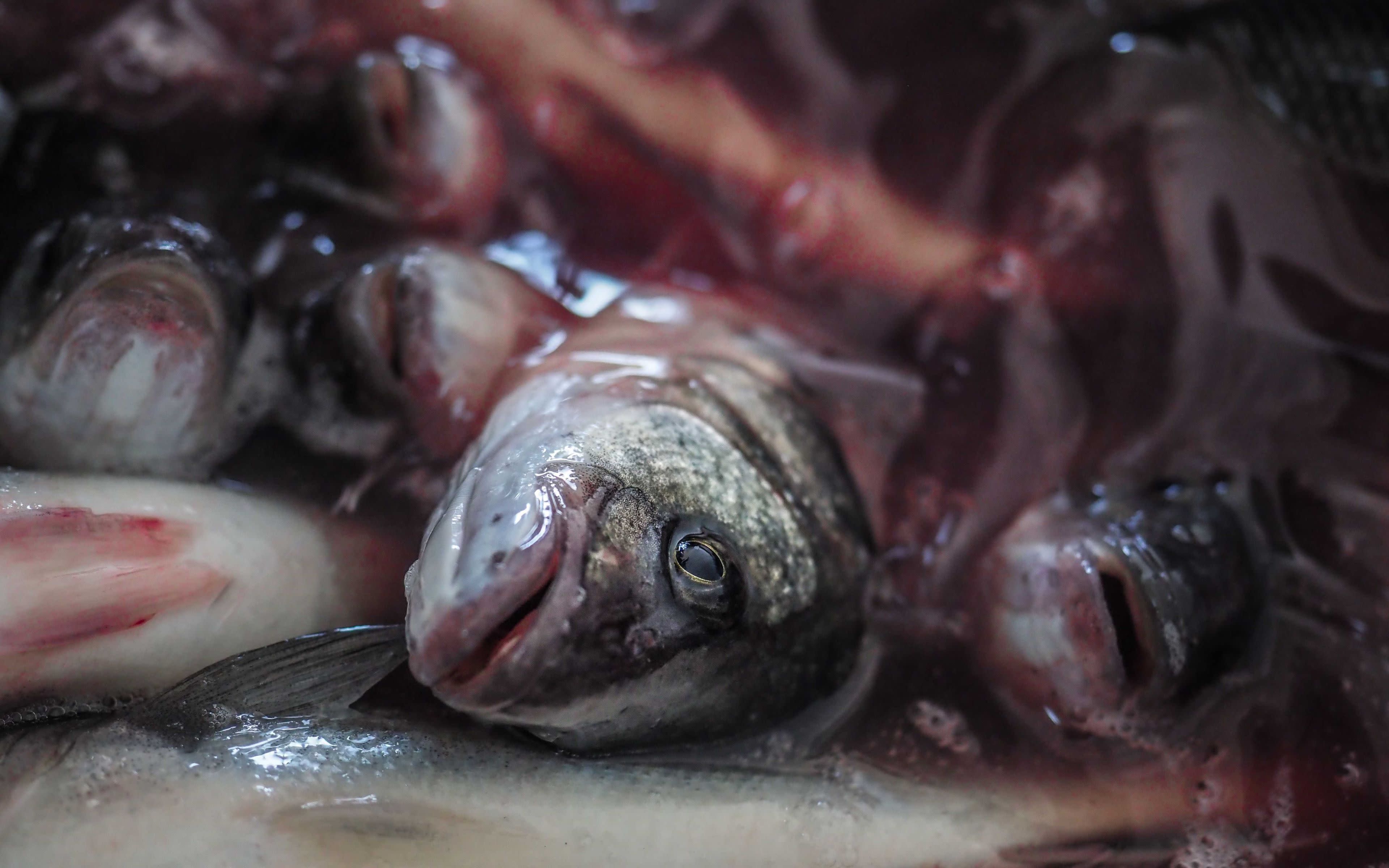




Nevada has outlawed the sale of eggs from caged hens, joining Utah, Colorado, Michigan, Washington, Oregon, California, Massachusetts, and Rhode Island.

Thanks to the efforts of animal advocates in Nevada, egg-laying hens have reason to celebrate. Effective July 1, 2022, the vast majority of eggs and egg products on supermarket shelves across the state will come solely from chickens, turkeys, ducks, geese, and guinea fowl who are free from cruel cages.
What is Nevada's cage-free law?
In June 2021, Governor Steve Sisolak signed a bill into law that bans “battery cages” on factory farms across the state. These cruel wire cages measure just 67 square inches—no bigger than an iPad. Crammed into these tiny spaces amongst six to seven other birds—brutally designed to achieve high density and high profit—hens on large-scale industrialized farms spend their entire lives unable to spread their wings. With this new law going into effect, every hen raised in Nevada will be given twice as much floor space. This means that they’ll finally have enough room to stand up straight. To move around without chafing against the walls of their prisons.
Assembly Bill 399 goes even further by requiring that any commercially-produced egg sold in the state of Nevada—regardless of where it was laid—must come from a cage-free facility. Nevada sources a majority of its eggs and egg products from giant producers in neighboring states, so this law gives important protections to birds well beyond Nevada’s borders.
And the new law doesn’t stop there. By January 1, 2024, egg-laying hens in Nevada will be required to be raised in a “cage-free housing system.” In these systems, hens will finally have the ability to exhibit some of their natural behaviors with unrestricted access to multiple tiers of perches and enrichments. At their happiest, hens love to scratch the ground, forage for snacks, and bathe their feathers in the dust. While the new houses won’t give these inquisitive birds as much freedom as “free range” or “pasture-raised” setups would, they’re an improvement from the daily torture of battery cages.
How does AB 399 protect chickens?
Nevada’s decision to go cage-free will improve the lives of thousands upon thousands of chickens, among other species. Small-scale operations—those housing less than 3,000 hens—are exempt from the new law. However, large-scale, commercial producers account for almost all eggs laid and sold in the US. As of 2020, these industry giants have condemned roughly 70% of all laying hens—approximately 250 million birds—to these cramped cages. Fortunately, the new Nevada law will bring that number down.
What you can do
Because animal lovers like you in Nevada spoke up, this transformative piece of legislation became a reality. In less than one year, hens will no longer be confined to barren cages. And in just a few years more, they’ll once again get to peck the ground and perch upon roosts like they were meant to. Nevada is the latest state to go cage-free—and with your help, it won’t be the last.





